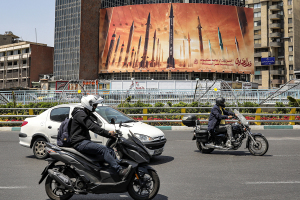Liquified petroleum gas: Essential to alleviating energy poverty in Africa

Gas is a fossil fuel, so it endangers our planet, right? At least that’s what radical environmentalists and climate activists want you to believe.
The problem? Their perspective is completely detached from energy reality and obstructs alleviation of energy poverty.
Gas is a fossil fuel wonder. It has been a game changer in meeting human civilization’s energy demand for clean fuel for cooking and heating. So much so that the very organizations that ask countries to reduce fossil fuel emissions actually fund their acquiring more and more gas resources.
Africa, especially, is in dire need of more gas resources. The recent anti-fossil fuel policies and exhaustion of funds for gas exploration pose a serious threat to the continent’s ambitions to tackle energy poverty and deaths due to use of solid cooking fuels.
Gas as a cooking fuel is revolutionary
People across the globe are becoming increasingly aware of natural gas. It is touted as the perfect transitional energy source that enables economies to switch from coal to renewables.
What many anti-fossil activists do not realize is that gas as an energy source has been revolutionary in modern society during the 20th and 21st centuries, even before we began using it for electricity generation at a large commercial scale.
People across the world were traditionally using highly polluting, less efficient, more time-consuming sources of cooking fuel like wood, charcoal, and dung.
Air pollution from these fuels is responsible for almost 5 percent of the global burden of disease. Recent scientific studies tell us that “burning solid fuels [for cooking and heating] kills about 4 million people every year, a number which is higher than the combined impact of HIV-AIDS, malaria and tuberculosis.” These fuel sources also resulted in large-scale deforestation.
The introduction of Liquified Petroleum Gas (LPG)—a product extracted by refining crude—as a cooking fuel transformed the way human civilization made food. Today, it continues to transform billions of lives across the world. LPG is also used for heating and transportation purposes in many parts of the world.
Experts tell us that “Household transition to cleaner cooking fuels (LPG) has historically been understood as an energy ladder, with clean energy access resulting from improvements in household socioeconomic status.” A study done on the LPG adoption in Cameroon between 1975 and 2016 “revealed the existence of a short-run unidirectional causal relationship ranging from LPG consumption to economic growth.”
The World Bank and United Nations have dedicated time, energy, and resources during the past three decades to alleviating energy poverty related to cooking. The United Nations’ Sustainable Energy for All Initiative states, “Increasing household use of Liquefied Petroleum Gas (LPG) is one of several pathways to meet the goal of universal access to clean cooking and heating solutions by 2030.”
However, not all parts of the world have made this switch to LPG. Millions in Africa still use wood and charcoal and live in persistent energy poverty.
Africa in dire need of a major LPG push
When it comes to LPG consumption, Sub-Saharan African countries are ranked far lower than their North African neighbors like Egypt, Morocco, and Algeria in global rankings. Approximately 900 million people cook with polluting fuels in Sub-Saharan Africa.
A systematic review on the health impacts of solid cooking fuels in Sub-Saharan Africa found out that wood smoke caused “acute respiratory illness, impaired lung function, increased blood pressure, low birth weight, oesophageal cancer, sick building syndrome, non-syndromic cleft lip and/or cleft palate and under-five mortality.”
Women are worse affected than men, as they are more often involved in cooking. Unfortunately, studies predict that the number of people relying on solid cooking fuel could remain as high as 660–820 million by 2030 if there are no major interventions to make LPG more affordable and accessible.
Besides the direct and immediate positive effect on the health of nearly 1 billion people in Sub-Saharan Africa, the transition to LPG will also help protect Africa’s forests. In Ghana alone, forests were unsustainably felled for wood and were disappearing at a rate of approximately 2 percent per year. LPG can change that situation throughout Africa.
West Africa and South Africa: Making progress
Using LPG as household fuel has been expanding in several countries in West Africa since the early 1990s. Ghana, Senegal, Togo, Benin, Cameroon, Burkina Faso, and Ivory Coast have managed to develop an LPG market due to government support and subsidies. Yet West African average per capita LPG consumption is only 3.5 kilograms per annum and is low by international standards.
Despite being the top LPG consumer in West Africa and a leading exporter of LPG, Nigeria’s consumption is still low due to affordability. Domestic consumption is only around 15 percent of the total produced per year in the country. The per capita consumption rate is only 1.8 kilograms, and 80 percent of the Nigerian population relies on the use of biomass fuels for cooking.
There are only a few countries where the LPG situation is much better and the support for an LPG transition is growing.
South Africa, which has been plagued by blackouts in recent years, is promoting LPG so that consumers can use gas for cooking and heating. Interventions to expedite LPG use in the past 7 years have resulted in beneficiaries’ improving their living standards and saving on electricity bills. The ruling African National Congress’ economic committee has suggested that promoting LPG will ease electricity demand.
South Africa’s current per capita consumption of LPG stands at 5.5 kilograms per annum. It is still miniscule in comparison to Morocco’s 44 kilograms. South Africa aims to double its LPG usage within the next five years.
Energy companies and the need for policy interventions
To make their LPG dream come true, South Africa is securing imports from private producers like Total and Saudi Aramco, which are involved in large offshore gas and petroleum projects.
LPG producers and distributors have played a key role in making LPG accessible to millions of households in Africa. Vivo energy, for example, is a major supplier of LPG in Burkina Faso, Cape Verde, Ivory Coast, Kenya, Mauritius, Morocco, Tunisia, and Uganda.
Efforts by energy companies are not sufficient to make significant progress when it comes to LPG transition. Governments must address the exciting technological gap in the production, import, and transportation of LPG. In many African countries, LPG is unaffordable due to lack of proper facilities for transportation and distribution.
Introduction of LPG subsidy policies may be necessary in some cases to facilitate the transition. India, for example, managed to increase LPG consumption significantly in the last four years through the introduction of LPG subsidies to poor households.
A long-term vision for LPG transition may also require approval of more oil and gas projects, which can be quite challenging given that major international funders are now refusing to fund new fossil fuel projects in Africa.
This means that international agencies like the African Development Bank and the United Nations must encourage international donors to invest in African oil and gas projects, and reverse the growing trend of anti-fossil funding bias.
But American President Joe Biden has called for reducing funding for fossil fuel projects globally, and his Special Presidential Envoy for Climate John Kerry is asking global leaders to reduce fossil fuel consumption. If they successfully persuade their counterparts in Europe and elsewhere, it could mean disaster for Africa, where countries are just beginning to help their communities escape the centuries-long bondage to dirty and choking solid cooking fuels.
LPG has been a life-saver for billions around the world. Let not the media’s evil image of fossil fuels distort their real-world importance.
Vijay Jayaraj (M.Sc., Environmental Science, University of East Anglia, England), is a Research Contributor for the Cornwall Alliance for the Stewardship of Creation.




























